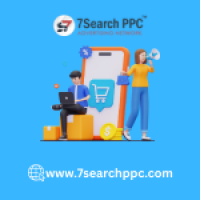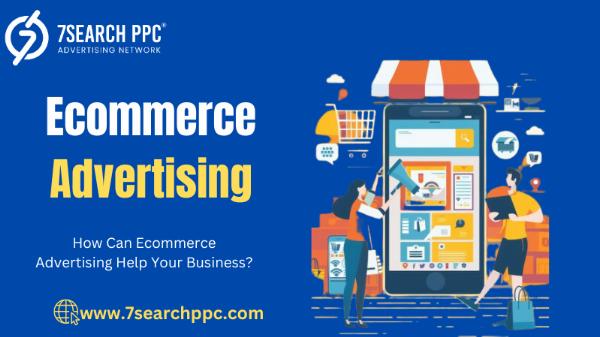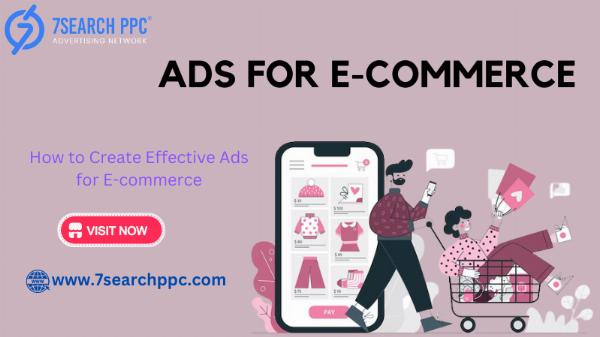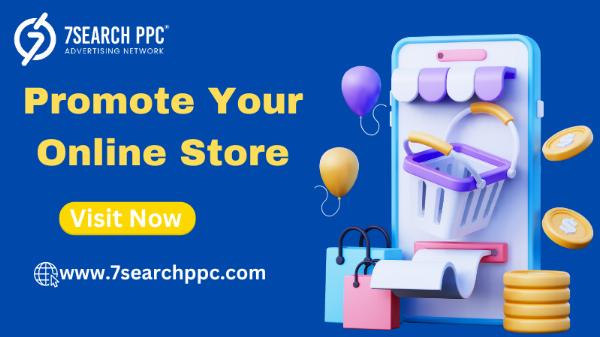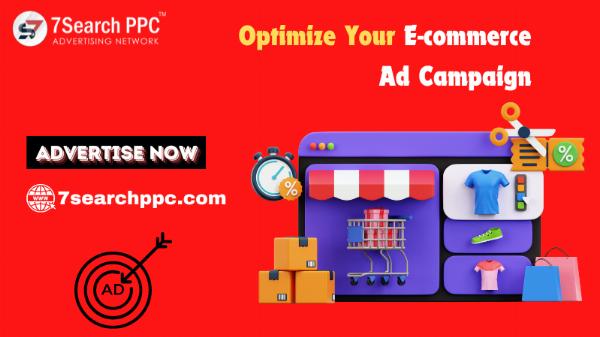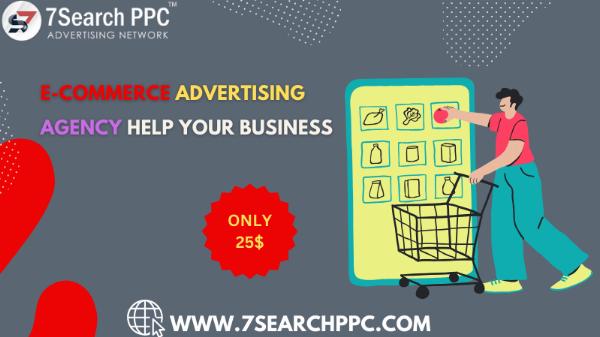PPC for E-Commerce: A Complete Guide to Boosting Your Online Sales
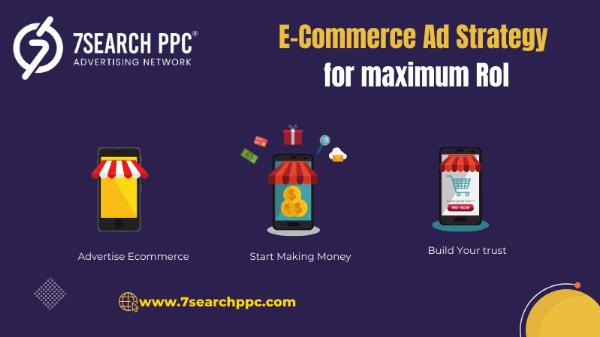
Strong 8k brings an ultra-HD IPTV experience to your living room and your pocket.
In today’s digital marketplace, the competition to capture online shoppers' attention is fierce. If you own an e-commerce business, chances are you’ve already explored various marketing tactics to drive sales. One of the most effective strategies to grow your online store and increase revenue is PPC for E-Commerce. Pay-per-click (PPC) advertising offers instant visibility on search engines and social platforms, enabling businesses to reach their target audiences precisely when they’re searching for products.
In this complete guide, we’ll delve into what PPC for e-commerce entails, how it works, and how you can use it to optimize your online sales.
What is PPC for E-Commerce?
PPC for E-Commerce is a digital marketing model where businesses pay a fee each time one of their ads is clicked. Essentially, it’s a way of buying visits to your e-commerce site rather than earning them organically through search engine optimization (SEO). The most common platforms for PPC advertising are Google Ads, Bing Ads, and social media platforms like Facebook and Instagram.
With PPC, e-commerce stores can get immediate exposure to prospective customers by bidding on relevant keywords. When these customers search for those keywords, your ad appears, and you pay only when someone clicks on the ad, bringing them to your website.
Types of PPC Ads for E-Commerce
There are various forms of PPC ads that e-commerce businesses can utilize to boost traffic and sales:
- Search Ads: These ads appear on the search engine results page (SERP) when users search for specific keywords related to your products. Search ads are text-based and are usually placed at the top or bottom of the SERP.
- Display Ads: Display ads are banner advertisements that appear on websites within Google’s Display Network. These are visual ads that target potential customers while they browse the web.
- Shopping Ads: For e-commerce businesses, Google Shopping ads are highly effective. These ads display product images, prices, and details directly on the SERP, offering users immediate information and increasing the likelihood of clicks.
- Social Media Ads: Platforms like Facebook, Instagram, and Pinterest offer e-commerce stores the ability to showcase their products to a highly targeted audience based on demographics, interests, and behavior.
- Remarketing Ads: Remarketing is a strategy where ads are shown to users who have already visited your website but didn’t complete a purchase. These ads are designed to bring back potential customers to convert them into buyers.
Why is PPC Important for E-Commerce?
PPC advertising is particularly valuable for e-commerce for several reasons:
1. Immediate Results
Unlike SEO, which can take months to generate organic traffic, PPC delivers immediate results. Once your ad campaign is live, your ads are visible to your target audience, driving traffic and potential sales in real time.
2. Targeted Advertising
PPC allows e-commerce advertising businesses to target users based on specific demographics, geographic locations, and even behavior patterns. You can also select keywords relevant to your products, ensuring that your ads are shown to people who are actively searching for items you offer.
3. Cost Control
One of the biggest benefits of PPC is the ability to control costs. You set your daily or monthly budget, and you only pay when someone clicks on your ad. This makes PPC advertising scalable, whether you're a small business or a large enterprise.
4. Measurable ROI
PPC platforms provide detailed analytics and reports on the performance of your campaigns. You can track metrics like impressions, clicks, conversion rates, and return on ad spend (ROAS), giving you full transparency into how effective your campaigns are.
5. Brand Visibility
Even if users don’t click on your ads right away, PPC helps build brand awareness. Seeing your ad multiple times can influence customers to eventually make a purchase, especially when combined with remarketing campaigns.
How to Create an Effective PPC Strategy for E-Commerce
To fully leverage the power of PPC for e-commerce, it’s essential to craft a well-thought-out strategy. Here are the key steps:
1. Define Your Goals
Before launching any campaign, define your objectives. Are you looking to drive traffic to your website, increase product sales, or boost brand awareness? Clear goals will help you measure success and optimize campaigns.
2. Choose the Right Keywords
Keywords are the foundation of any PPC campaign. Start by researching keywords that are relevant to your products and that your target audience is likely to search for. Tools like Google Keyword Planner can help you identify high-volume, low-competition keywords that will maximize your reach.
For example, if you sell shoes, potential keywords might include “buy running shoes online,” “affordable sneakers,” or “women’s athletic shoes.”
3. Optimize Ad Copy
Once you’ve selected your keywords, write compelling ad copy that includes a clear call-to-action (CTA). Your ad copy should focus on the value proposition, such as a special discount or free shipping, to entice users to click on the ad.
For example:
“20% Off All Sneakers + Free Shipping! Shop Now.”
4. Utilize E-Commerce PPC Services
If managing PPC campaigns in-house seems overwhelming, many companies offer E-Commerce PPC Services that specialize in creating and managing campaigns tailored to your business. These services can help you optimize bids, improve ad quality scores, and maximize your return on investment (ROI).
5. Create Targeted Landing Pages
Once a user clicks on your PPC ad, they should be taken to a targeted landing page, not your homepage. This page should be directly related to the product or service in the ad, with clear information, engaging visuals, and a prominent CTA.
For example, if your ad is promoting a sale of women’s shoes, the landing page should feature those specific products and offer easy navigation to finalize the purchase.
6. Monitor and Adjust Your Campaigns
The work doesn’t stop once your ads are live. You’ll need to regularly monitor their performance and adjust bids, keywords, and targeting as needed. PPC platforms provide performance metrics like click-through rates (CTR), conversion rates, and cost-per-conversion. Use this data to fine-tune your campaigns and improve results.
E-Commerce Solutions to Enhance Your PPC Strategy
Integrating various E-Commerce Solutions with your PPC campaigns can enhance user experience, streamline operations, and ultimately increase sales. Here are a few key solutions to consider:
1. Dynamic Product Ads
Dynamic product ads automatically show potential customers personalized ads based on their past behavior on your website. For example, if a user viewed a specific product but didn’t make a purchase, they’ll see an ad featuring that product as they browse the web.
2. E-Commerce Platforms Integration
Integrating your PPC campaigns with e-commerce platforms like Shopify, Magento, or WooCommerce allows for seamless tracking and management of your product inventory. These platforms provide tools to sync your product catalog with Google Shopping and Facebook ads, making it easier to manage campaigns.
3. Analytics and Conversion Tracking
Accurate data tracking is crucial for optimizing your PPC campaigns. E-commerce solutions like Google Analytics, enhanced e-commerce tracking, and Facebook Pixel help you gather insights into user behavior, which can be used to refine your campaigns and improve conversions.
4. Customer Relationship Management (CRM)
Implementing a CRM system allows you to manage customer data, track interactions, and improve marketing efforts. By integrating your CRM with your PPC campaigns, you can create more personalized ad experiences, nurturing leads and increasing customer lifetime value.
PPC for E-Commerce: Best Practices
To get the most out of your PPC for E-Commerce campaigns, follow these best practices:
1. Focus on High-Intent Keywords
High-intent keywords are those that signal the user is ready to make a purchase, such as “buy,” “best price,” or “free shipping.” Prioritize these keywords in your campaigns for higher conversion rates.
2. Use Negative Keywords
Negative keywords prevent your ad from showing for irrelevant searches. For instance, if you’re selling premium furniture, you might use negative keywords like “cheap” or “free” to avoid appearing in searches that won’t lead to conversions.
3. A/B Test Ads
A/B testing involves creating multiple versions of your ad to see which one performs better. Test different headlines, descriptions, CTAs, and landing pages to optimize performance.
4. Leverage Remarketing
Remarketing targets users who have previously interacted with your website, offering a second chance to convert them into customers. Remarketing ads can be particularly effective for reminding users about products they’ve viewed or abandoned in their cart.
5. Optimize for Mobile
With a growing number of shoppers making purchases on mobile devices, it’s crucial to ensure your ads and landing pages are mobile-friendly. Test how your ads look and function on smartphones and tablets to avoid losing potential customers due to poor user experience.
Conclusion
PPC for E-Commerce is a powerful tool that can help you drive targeted traffic, boost sales, and grow your business. By implementing a well-structured PPC strategy, optimizing your ads, and leveraging e-commerce solutions, you can maximize your return on investment and outpace the competition. As you become more familiar with PPC, continue testing new strategies, and keep an eye on your analytics to refine your approach for sustained success.
FAQs
What is PPC in e-commerce?
Ans. PPC, or Pay-Per-Click, is an online advertising model where businesses pay a fee each time someone clicks on their ad. In e-commerce, PPC ads help online stores attract visitors by displaying their products when users search for relevant keywords.
How does PPC help boost online sales for e-commerce businesses?
Ans. PPC helps e-commerce businesses increase online sales by targeting high-intent users who are searching for specific products. With PPC, businesses can get immediate exposure on search engines and social media, driving relevant traffic that is more likely to convert.
Which platforms are best for PPC for e-commerce?
Ans. The most common platforms for e-commerce PPC are Google Ads, Bing Ads, Facebook Ads, Instagram Ads, and Google Shopping. Each platform has its unique benefits, so it’s best to use a combination to reach a broad audience.
What are e-commerce PPC services?
Ans. E-commerce PPC services are agencies or professionals specializing in managing PPC campaigns for online stores. These services help businesses optimize their ad spend, improve performance, and achieve better ROI.
What are the best practices for e-commerce PPC campaigns?
Ans. Best practices include targeting high-intent keywords, using negative keywords, creating optimized landing pages, A/B testing your ads, and leveraging remarketing. Monitoring and adjusting campaigns based on performance data is also crucial for success.
Note: IndiBlogHub features both user-submitted and editorial content. We do not verify third-party contributions. Read our Disclaimer and Privacy Policyfor details.

